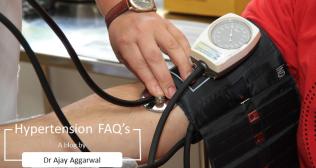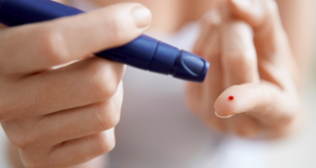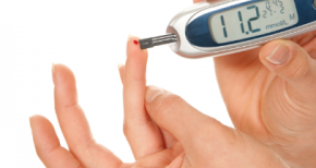All About Thyroidectomy
Thyroidectomy is the surgical removal of part or all of the thyroid gland. This important gland, located in the lower front portion of the neck, produces thyroid hormone, which regulates the body’s production of energy. A healthy thyroid gland is shaped like a butterfly, with right and left lobes connected by a bridge called the thyroid isthmus. Depending on the reason for a thyroidectomy, all or part of the thyroid gland will be removed.
 Indications
Indications
Thyroidectomy is done for the following reasons:
- To remove malignant (cancerous) thyroid tumors
- To remove all or part of a goiter (an enlarged thyroid gland) that is pressing on neighboring structures in the neck, especially if this pressure is interfering the swallowing or the breathing.
- To remove and evaluate a thyroid nodule that on biopsy has had repeated “indeterminate” readings As an alternative to a conventional thyroidectomy, an Endoscopic Thyroidectomy can be done on the selected individuals.
How it is done?
Both types of thyroidectomy are usually done under general anesthesia.
Conventional Thyroidectomy
In a conventional thyroidectomy, a 3 – to 4 – inch incision will be made through the skin in the low collar area of the Neck. After your thyroid gland is removed, one or two stitches will be used to bring your neck muscles together again. Then the deeper layer of your incision will be closed with stitches, and your skin will be closed with sutures. A small suction catheter (tube) may be inserted near the area of your incision to drain any blood accumulated inside your neck. After about 24 hours, the suction catheter will be removed from your neck if it was needed. Most patients go home one or two days after the surgery.

Endoscopic Thyroidectomy
With increasing concern on the part of patients undergoing thyroid surgery, with reference to the aesthetic result of the surgical scar in the neck, thyroid surgeons have become sensitive to these concerns of the patients and have used smaller and smaller incisions, where appropriate, for thyroidectomy.A video assisted endoscopic camera and laparoscopic instruments is inserted through the ports which are placed via axillary, breast or anterior chest to reach, dissect and remove the thyroid organ in the neck.

The explicit purpose for using these approaches is to minimize the length of the incision or to avoid an incision in the neck altogether for thyroid lobectomy or total thyroidectomy.
- Thyroid nodule is benign.
- Cancer is intrathyroidal.
- The nodule/tumor is small (< 4 cm in diameter).
- The thyroid gland is small (5 to 6 cm). No need for regional lymph node dissection.
- Patient does not have Hashimoto’s thyroiditis.
- Patient is not obese.
- There is no previous surgery in the neck or
superior mediastinum.
Recovery after Endoscopic Thyroidectomy surgery is usually quick and slick. The main benefit of Endoscopic Thyroidectomy is the superior cosmetic result. Many patients do not want to exchange an ugly thyroid swelling with an even uglier scar. Endoscopic Thyroidectomy thus may be appealing for them as only keyhole incisions are placed in hidden areas. Once they heal, the scars are almost negligible and this would appeal to all in general and particularly the more cosmetically inclined.
What to expect once you decide upon surgery?
Once you have met with the surgeon and decided to proceed with surgery, you will be scheduled for your pre-op evaluation where you’ll also meet an anesthesiologist.
- On the day before surgery you shouldn’t eat or drink after midnight
- The surgery usually takes 1 – 2 hours
- Surgery would be performed through a smaller incision with the aid of a video camera through a distant incision in the axilla and lateral chest wall or breast.
- Once you are fully awake, you will be moved to a bed in a hospital room where you could eat and drink as much as you wish.
After surgery
If half (hemi) thyroidectomy is performed, it is unlikely that you require a thyroid pill unless you are already on thyroid medication for low thyroid (Hashimoto’s thyroiditis). If you have your entire (total) or remaining (completion) thyroidectomy, then you have no internal source of thyroid hormone remaining and you will need lifelong thyroid hormone replacement.
What will be my physical restrictions postsurgery?
Brief limitation in extreme physical activities following your surgery. This is primarily to reduce the risk of a post operative neck hematoma (blood clot) and breaking of stitches in the wound closure. Normal activity can begin on the first post-operative day. Vigorous sports, such as swimming, and activities that include heavy-lifting should be avoided for at least ten days to 2 weeks.
Will I be able to lead a normal life after the surgery?
Yes. Once you have recovered from the effects of thyroid surgery, you will be able to doing anything that you used to do prior to surgery. Some patients become hypothyroid following thyroid surgery, requiring treatment with thyroid hormone.
This is especially, true if you had your whole thyroid gland removed. Thyroid hormone replacement therapy might be delayed for several weeks, if you are to receive radioactive iodine (RAI) therapy unless there’s a plan for you to receive TSH injection prior to RAI.
















}}drupal-data/images/blog-lists.png)


